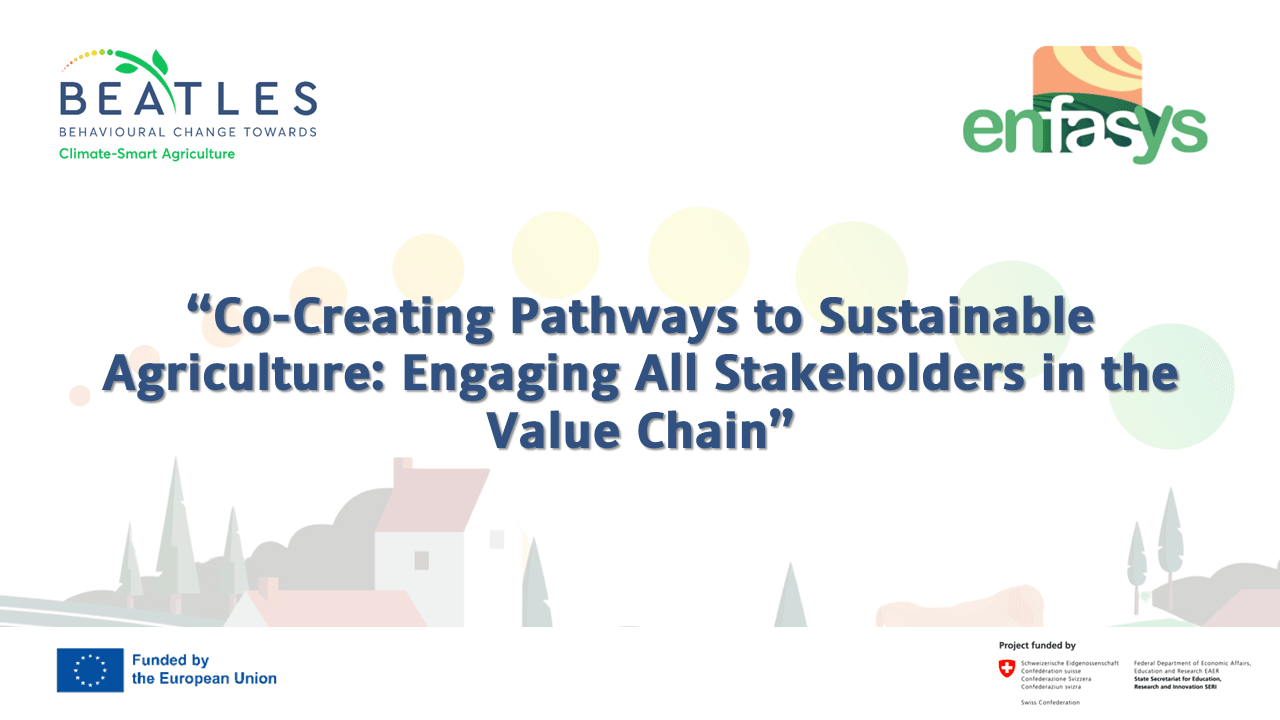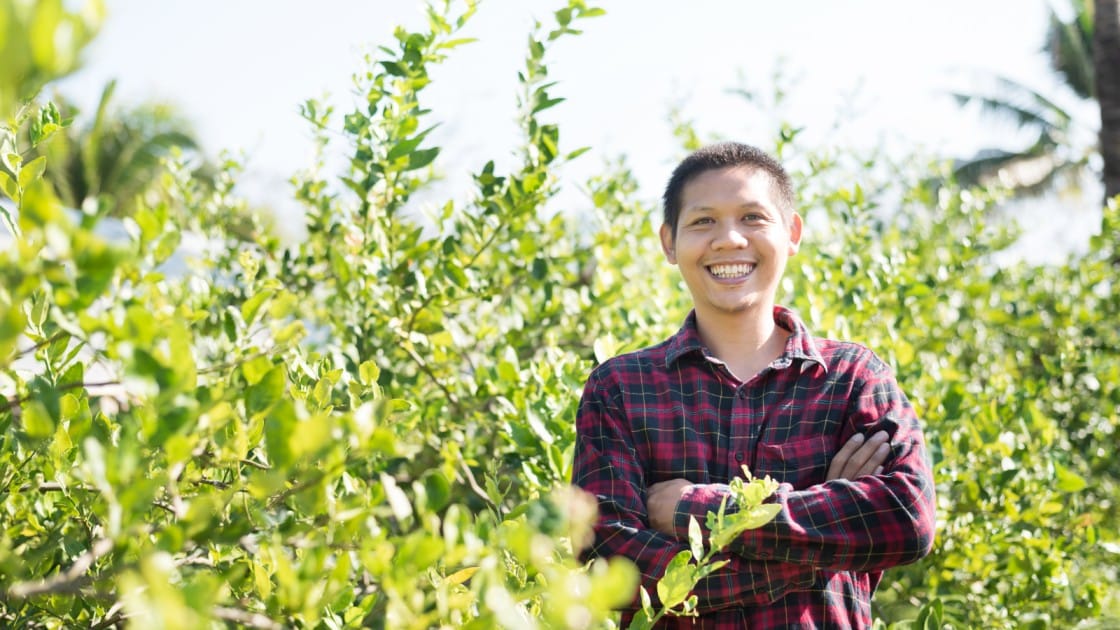On November 21, 2024, the BEATLES project held its second webinar and workshop, co-organized with the sister project Enfasys, under the theme “Co-creating Pathways to Sustainable Agriculture: How to Engage All Stakeholders in the Value Chain.” The event, hosted by Q-PLAN International and Sustainable Innovations (SIE) from BEATLES, alongside The Association of Balkan Eco-Innovation for Enfasys, brought together 72 participants, including researchers, policymakers, and industry experts.
Key Presentations
Marilena Gemtou (Agricultural University of Athens, BEATLES), the Coordinator of the BEATLES project, provided an overview of the project’s goals and use cases. Marilena explained the approach to be followed in the upcoming years, and the expected main outcomes throughout the project.
Davide Guariento (The Association of Balkan Eco-Innovation, Enfasys) introduced the aims and key pillars of the Enfasys project, along with the case studies, emphasizing its role in transitioning to sustainable agriculture by fostering stakeholder engagement.
Dr. Nelson Ekane (Stockholm Environment Institute, BEATLES) highlighted the importance of co-creation in Climate-Smart Agriculture (CSA). His presentation detailed BEATLES’ structured approach to identifying CSA challenges and opportunities, using methodologies such as literature mapping, interviews, surveys, and co-creation workshops. Challenges identified include broad and generic EU regulatory frameworks for CSA, insufficient granularity in CAP measures to address issues like water pollution, and regional disparities in implementing CAP measures. However, opportunities also emerged, CAP’s significant budget can promote CSA practices, participatory methods and farmer-centered approaches can improve CAP outcomes., and momentum for sustainable practices in Western and Southern Europe could drive change across the EU.
Louis Tessier (ILVO) and Marija Roglic (Montpellier Business School), from the Enfasys project, shared lessons on stakeholder engagement for food system transformation. They underscored the value of integrating diverse knowledge types and the benefits of using system mapping as a tool for fostering shared understanding among stakeholders. Their key takeaways included, multi-stakeholder processes require adaptable strategies due to their complexity, established practices must be tailored to specific contexts, stakeholder ownership is crucial for lasting transformation, and effective co-creation fosters trust and produces rewarding outcomes.
Janne Parviainen and Sukaina Bharwani (SEI) presented the Tandem Framework, a transdisciplinary approach for co-producing knowledge that bridges scientific and local insights. Applied in projects like FRACTAL and DIRECTED, the framework emphasizes iterative phases of collaboration to support climate resilience and adaptation.
Interactive Workshop
Following the presentations, participants engaged in an interactive workshop that examined challenges and strategies in co-creation activities. Two use cases were spotlighted:
- Enfasys – Organic Vegetable Sector in Flanders:
- Activities: 17 interviews, policy workshops, behavioural experiments, farmer surveys, and stakeholder meetings.
- Challenges: Stakeholder fatigue, limited engagement from less-organized groups, and navigating complexity with constrained resources.
- Enabling factors: Collaboration with BioForum, flexible methodologies, and ILVO’s expertise and legitimacy.
- BEATLES – Organic Apple Farming in Spain:
- Activities: Surveys, interviews, and creating a trusted advisor network to connect with farmers.
- Best practices: Minimizing participant time demands, combining project goals with participant interests, and leveraging existing stakeholder networks.
Using the Miro platform, participants collaboratively identified key challenges in engaging stakeholders during co-creation activities. These challenges varied across stakeholder groups, such as farmers, advisors, policymakers, and consumers. Through these collaborative sessions, participants also proposed adaptive strategies to address these challenges, aiming to enhance stakeholder participation and improve the overall effectiveness of co-creation efforts.


